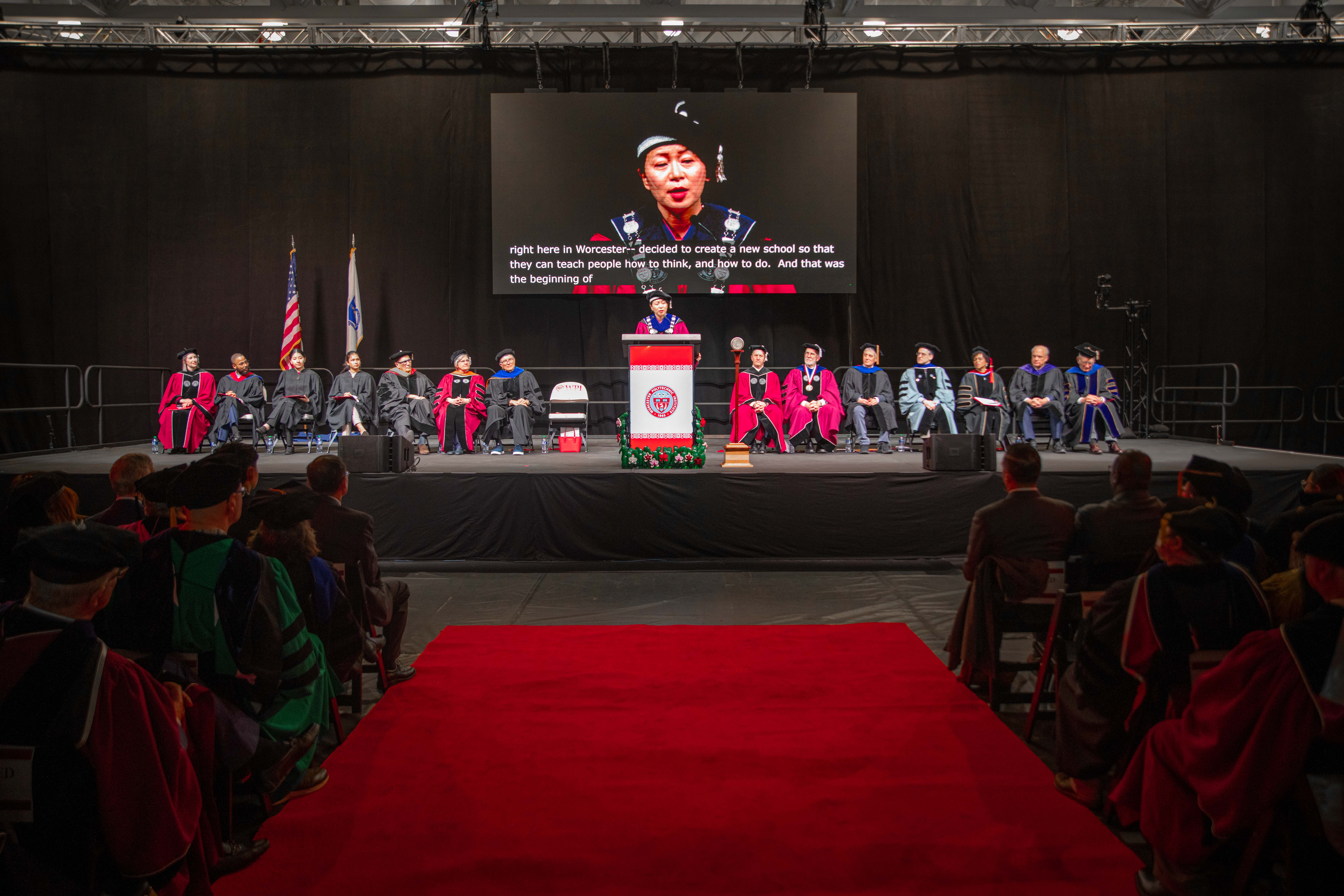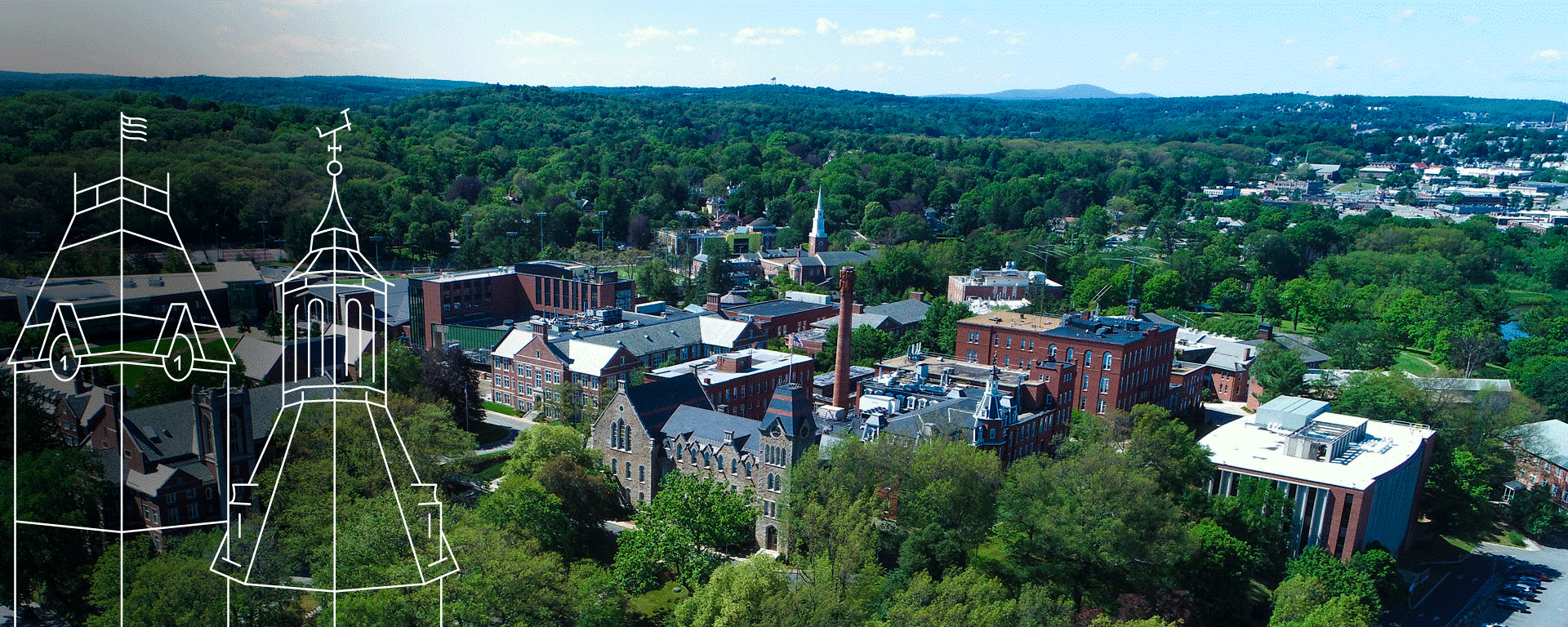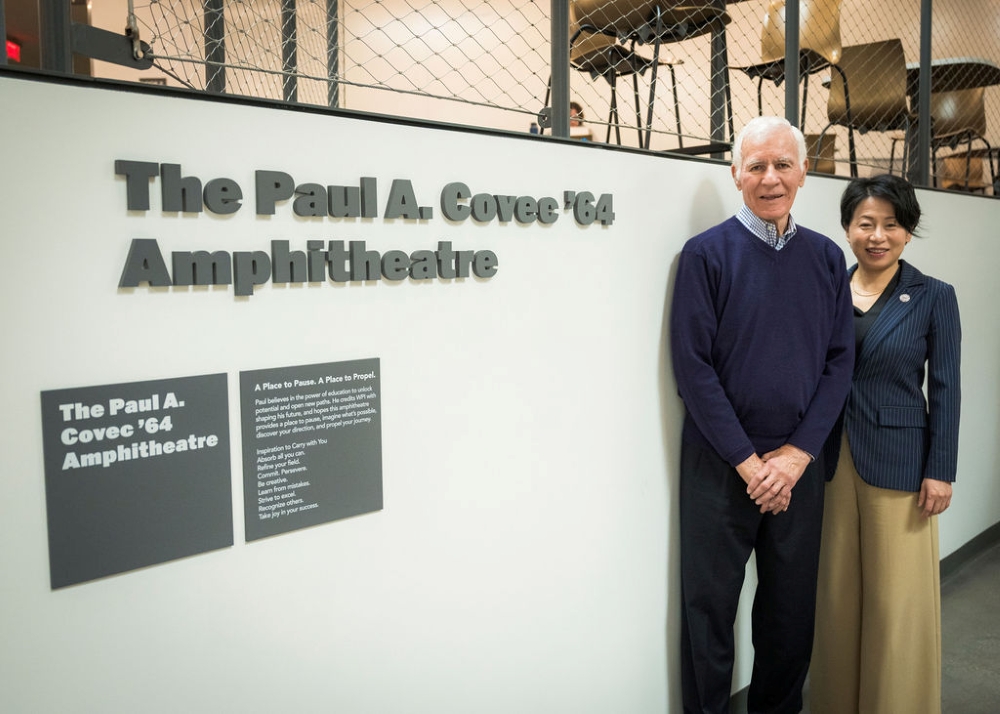Worcester Polytechnic Institute (WPI) recently received a $3 million challenge grant from the George I. Alden Trust for the creation of the Foisie Innovation Studio, a state-of-the-art home for WPI’s distinctive project-based approach to STEM (science, technology, engineering, and math) higher education.
The Alden Trust Challenge supports this vital facilities need at WPI and is aimed at generating alumni participation in the project; the Trust will fulfill its pledge when WPI alumni have raised $9 million toward the Foisie Innovation Studio over the next 18 months.
Named for Robert A. Foisie, a 1956 graduate of WPI and the university’s most generous individual donor, the Foisie Innovation Studio will serve as a hub for WPI’s project-based curriculum. Plans include a robotics lab, maker space, and high-tech classrooms for Great Problems Seminars, courses that introduce first year students to WPI team-based projects focused on real-world problems.
A Center for Innovation and Entrepreneurship will support the "practice" side of WPI’s motto—theory and practice—by helping students find paths to commercialization for their projects. An Innovation Exchange will provide flexible workspace for student project teams—a space made for the evolution of ideas to innovations. A Global Impact Connector will showcase the history of WPI’s project-based curriculum, student project teams working throughout the world, alumni achievements, and donors to the Foisie Innovation Studio.
"The Foisie Innovation Studio will embody and exemplify the experiential, interdisciplinary education our students, faculty, alumni, and staff value so much," said WPI President Laurie Leshin. "The Alden Trust is one of WPI’s true champions. Thanks to the Trust’s support, this facility will give our students and faculty the tools they need to pursue their ideas to the fullest and ensure that theory and practice translate to real impact."
WPI has been the exemplar of innovative project-based learning in higher education since the early 1970s, with the inauguration of its groundbreaking curriculum known as the WPI Plan. The cornerstones of this curriculum are projects required for graduation—the Interactive Qualifying Project that sets student teams to work on problems at the intersection of science, technology, and society; and the Major Qualifying Project, which is in the student’s major area of study. These projects can take place on campus or at any of 40 WPI Global Project Centers around the world, where WPI students and are able to make a meaningful difference in communities and organizations.
Other key elements of the WPI curriculum include the Great Problems Seminars for first year students and the humanities and arts project, which provides the opportunity for students to develop depth in an area of the humanities and arts.
The Foisie Innovation Studio will provide the first central location on campus dedicated to student and faculty work in hands-on, project-based problem solving.
"George Alden was WPI’s first professor of mechanical engineering and one of the early leaders who advocated for the emphasis on both theory and practice in WPI’s educational approach. The Trust he established and that bears his name is proud to support the facility that will advance WPI’s innovative curriculum to the next level and help WPI students and faculty have an even greater impact on our world," said Warner Fletcher, chair of the Alden Trust.
The Alden Trust is one of WPI’s most generous benefactors, committing a total of nearly $25 million over the past 87 years to help advance the university’s mission of preparing the next generation of leaders in engineering and science. For if…The Campaign to Advance WPI alone, the Alden Trust has contributed a total of $14 million to help the university surpass its $200 million goal. This includes two grants totaling $11 million to renovate Goddard Hall into the George I. Alden Life Sciences and Bioengineering Educational Center and the recent $3 million challenge grant to the Foisie Innovation Studio. The Trust’s previous grants to WPI have established the George I. Alden Fund and the George I. Alden Chair in Engineering and have supported many capital projects aimed at advancing undergraduate teaching and learning; these include Salisbury Hall renovations, Atwater Kent renovations, Fuller Labs construction and campus computerization, Alden Memorial renovations, Higgins Laboratories renovations, and Little Theatre funding.
"The value of a WPI education and the great practical work WPI students accomplish around the world while pursuing their degrees, compounded by the huge positive contributions faculty and alumni make every day around the globe as well, is what inspired the Alden Trust to make this third grant to WPI’s current campaign," added Fletcher. "We hope this challenge during the home stretch of this campaign will inspire and incentivize WPI alumni around the world to give, or in many cases, to give again to this effort. Given that it was WPI alumni who dramatically enhanced the campus 100 years ago with the construction of the first gym, we think that it is only fitting and a wonderful opportunity for current alumni to step up to the plate now to support, in significant ways, the forward thinking of the creation of the Foisie Innovation Studio and pivotal WPI programs aimed at the next 100 years."
Myles Walton, a 1997 graduate of WPI and president of the WPI Alumni Association, has been rallying alumni around fundraising efforts for the Foisie Innovation Studio.
"This is our opportunity, as alumni, to make a big impact on the campus and on WPI students for years to come," Walton said. "The Alden Trust has just given us even greater motivation to support this vital and historic project, and I offer the Trust my gratitude on behalf of the WPI alumni community."
About George I. Alden and the Alden Trust
George I. Alden was an industrialist and an educator, having taught mechanical engineering for 28 years at WPI. As pioneer members of the WPI faculty, George Alden and his colleague Milton Higgins achieved national recognition in the 1880s and 1890s for their skillful and compelling espousal of an engineering education that combined practice with theory. Alden and Higgins were early examples of creative academic innovators whose energies took them beyond the campus into the competitive world of industry. In 1885 they joined with several Worcester businessmen in establishing Norton Emery Wheel Company. Upon his retirement from industry and teaching, Alden wanted to help young people become effective contributors to society through education. Thus he became a trustee of WPI, a trustee of the newly formed Worcester Boys Trade School, and a leading member of the Worcester School Committee. He established the George I. Alden Trust on August 24, 1912, for the general purpose of "the maintenance of some charitable or philanthropic enterprises," with particular expressed interest in "the promotion of education in schools, colleges, or other educational institutions," as well as a particular interest in several named Worcester educational organizations. With more than $19 million in overall contributions, the Alden Trust has been the most stalwart supporter of improvements to WPI’s physical plant, as well as one of the university’s most generous benefactors.



